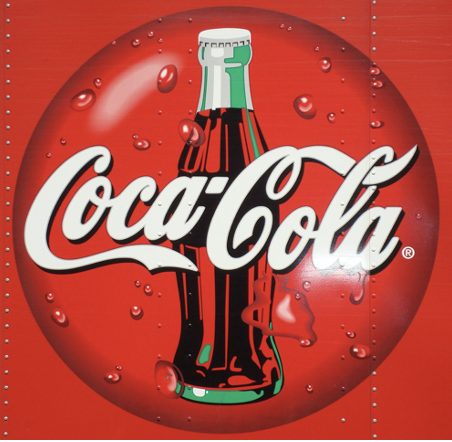Stealing, scheming, heroes, villains, action! You might think I’m talking about the new James Bond movie, but I’m actually talking about intellectual property!
When people hear the words “intellectual property” they may think of the traditional patents, copyrights, or trademarks. But most people might not realize that there is another kind of IP – trade secrets. I definitely fell into the “not knowing” category prior to working at an IP firm this past summer.
Although I worked on a multitude of IP matters, the one that stuck out to me the most was a high-stakes trade secret case. It felt just like a James Bond movie! I felt like I was a detective, scanning through documents, finding evidence. Then trying to figure out how many “crimes” the bad guy committed and what he stole from our client!
Now What Really is a Trade Secret?
First off, a trade secret can be some kind of sensitive information, such as a formula, method, or compilation that meets two requirements. First, the secret must have some sort of economic value that is derived from its being kept secret, even if it’s only some potential economic value. For example, it could be as big as the top-secret recipe for Coca-Cola or as modest as a coffee recipe at a local café!
Examples of trade secrets include food recipes, manufacturing codes, formulas for perfumes, the list is endless! Some of the most famous trade secrets might shock you: Google’s search algorithm, Listerine’s mouthwash, Krispy Kreme’s original glazed donut recipe, and even Twinkies!
Second, there must be some affirmative steps taken to keep it reasonably secret, for example locking something in a safe with a super-secret password. This requirement doesn’t mean that it was successfully kept secret. If someone finds out by accident the information is still likely a trade secret. For example, if someone accidentally walked into a room where the top-secret Dr. Pepper recipe was kept, doesn’t mean it loses its trade secret protections. The person who accidentally stumbled upon the trade secret still has to keep it a secret. Or if someone does try to steal it, they could be subject to trade secret misappropriation which we will get into next.

What in the World Does Misappropriation Mean?
Once someone has a valid trade secret, they have the right to prevent others from misappropriating the secret. Misappropriation is when someone obtains, uses or discloses, someone else’s trade secret without permission. This can happen by acquiring or obtaining the trade secret by improper means or the disclosure or use of a trade secret by someone who obtained the trade secret through improper means. Think of improper means as stealing, sneaking around where you shouldn’t be, bad faith – you know you shouldn’t do it, but you do it anyway.
Some of the time misappropriation is done by competitors seeking to obtain and use trade secret information or can be by a former employee who then becomes a competitor. It can also be done by someone violating their duty to keep the information a secret. A good example of this is an employee who has a confidentiality agreement and then breaches it. For example, let’s say a Google employee signed a confidentiality agreement to keep an algorithm secret. A few months later gets fired and takes the secret algorithm to Yahoo.
Hearing Aids Are Trade Secrets?
Now that we’ve gone through the basics of trade secrets, let’s turn it back to the case I worked on this summer. For the sake of our client and the firm I worked at, I’m going to keep the parties anonymous and refer to them as company X (our client), the defendant, and company Y (where the defendant now works).
Company Y is company X’s biggest competitor. They’re both top international manufacturers of hearing aids. The defendant worked at company X for almost two decades and had climbed up the ranks to an executive position over the years. Three days before the defendant resigned from company X, he took a portable electronic storage device and copied thousands of documents to the storage device, including confidential and proprietary trade secret information. Company X never gave the defendant permission to copy or use those documents for any matters outside of his professional duties within the company.
Once the defendant left company X, he took the storage device and began working at company Y, in an almost identical position. The files taken consisted of future products, sales plans, reports, etc., and were downloaded on company Y’s systems. Our firm was able to use forensic programming to discover how many times those files were downloaded, and to which systems they were downloaded and viewed on.

So What’s the Trade Secret and Does this Count as Misappropriation?
Since we already discussed what trade secrets are, and what constitutes misappropriation, let’s start our detective inquiry! First, we figured out whether Company X’s information was actually a trade secret.
To do this, we needed to answer the question of whether Company X made reasonable efforts to maintain the secrecy of the information and whether it had independent economic value. We knew pretty quickly the answer was yes to both of those questions. No one was allowed to look at or use those documents unless it was within duties specific to his role in the company. Plus, the information was economically valuable because the documents had information about future products and marketing strategies. Being economically valuable is important in discussing trade secrets because competitors wouldn’t be interested in this information unless it were of value to them!

Next, we needed to analyze whether the defendant had permission to access these documents, which we also knew right away he did not. It was becoming pretty clear that he took the documents by improper means when he copied what he was not supposed to and gave that information to a competitor. The defendant took a USB, downloaded the files, resigned, and then went to company X’s biggest competitor with the files. Pretty straightforward. This seems pretty improper, so he definitely committed trade secret misappropriation.
Even though they weren’t named as a defendant in this lawsuit, company Y could still be liable for trade secret misappropriation. Why? They likely knew the information was obtained through improper means. A company can be liable even if they’re not the ones who “stole” the information because misappropriation can happen by using a trade secret that you know was obtained by someone improperly. However, it wasn’t really something that came up because of how cooperative they were with us.
The parties ultimately settled, and the defendant returned the files to company X. But the experience and knowledge I gained while working on the case was incredible! I realized very quickly that I loved working on trade secret cases. They’re the closest thing to being a real-life detective as one can be in IP law. Plus, when we learned about trade secrets in my IP survey class this fall, I felt like an expert!

Alexandra Angyalosy
Associate Blogger
Loyola University Chicago School of Law, J.D. 2024
